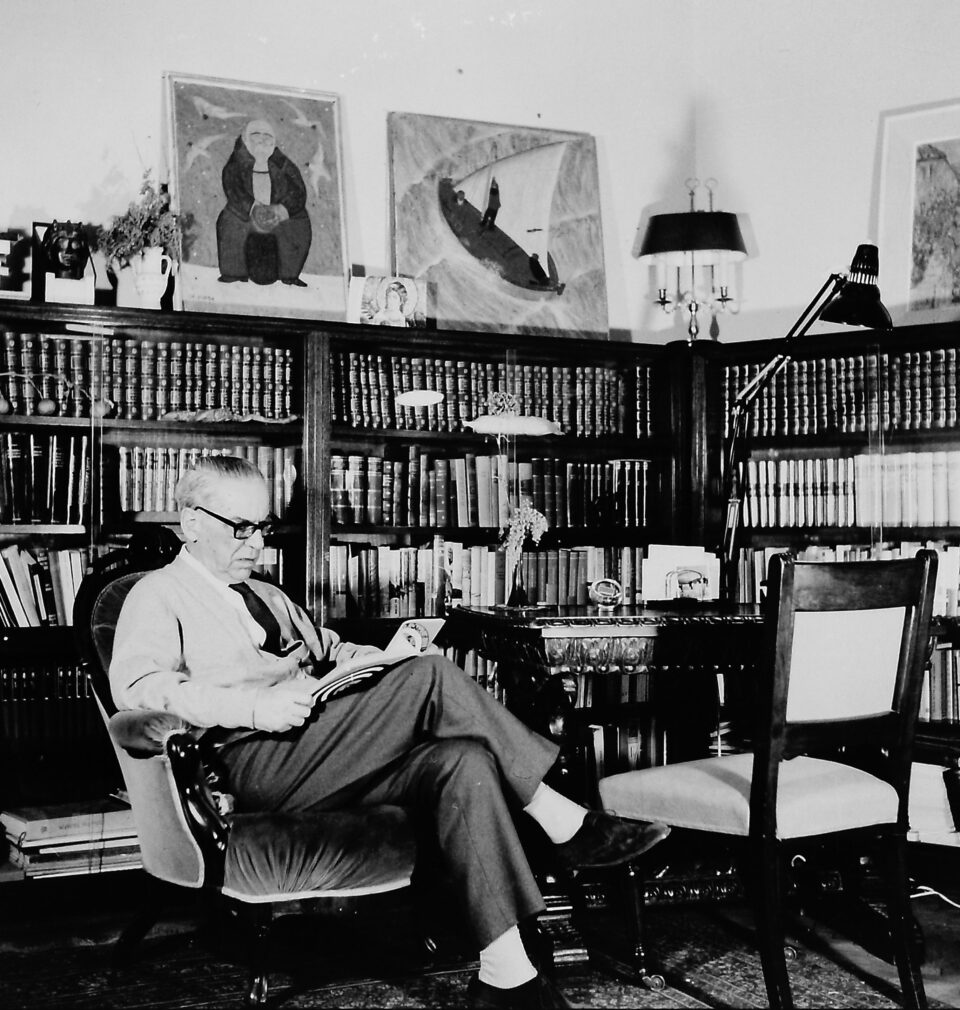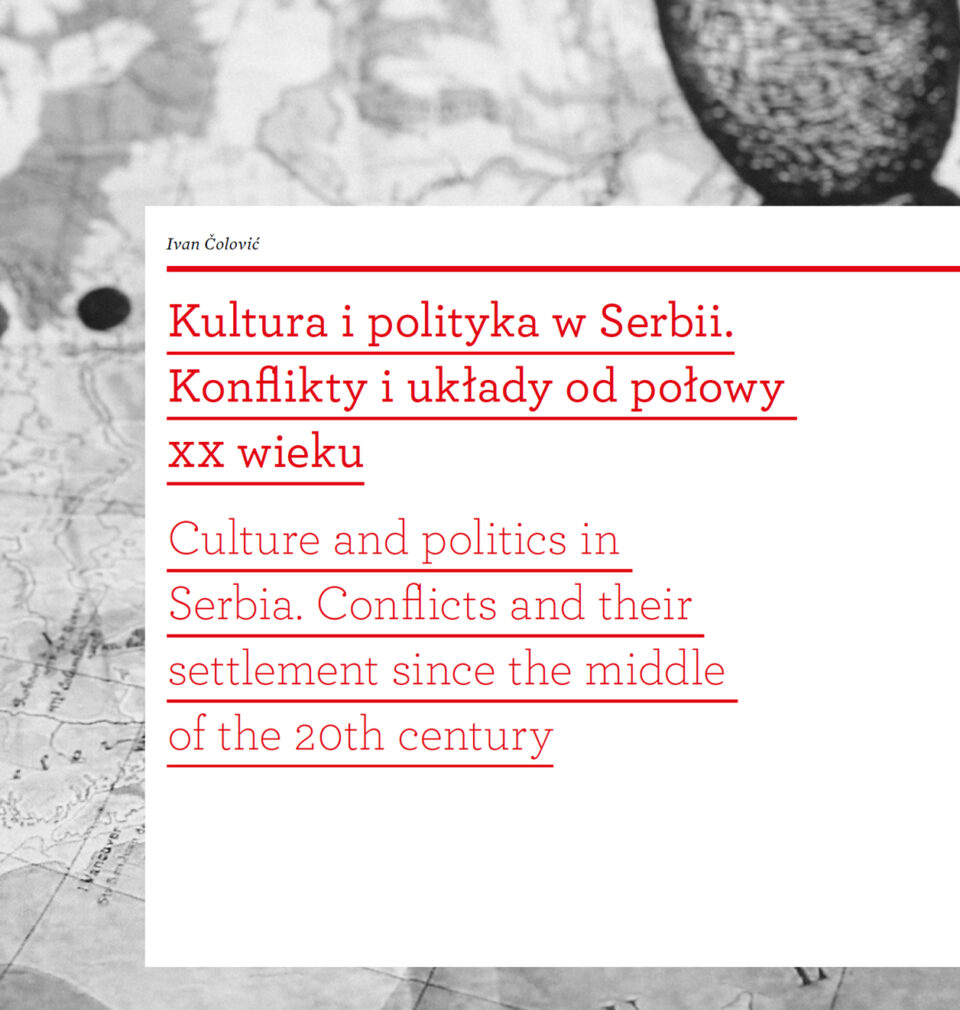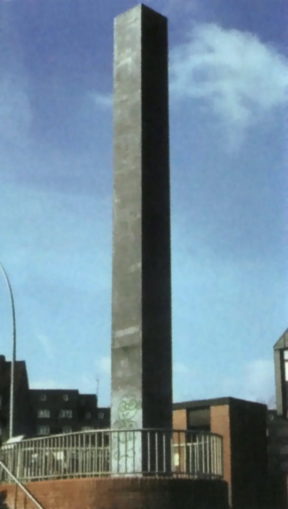
Culture and Politics
The Devil in Books
Publication: 11 October 2021
TAGS FOR THE ARTICLE
TO THE LIST OF ARTICLESThe attempt to purge literature of the dark sides of Balkan reality, so that books cease to be the lairs of prejudice and panoramas of human mistakes, and so that they promote religious and ethnic tolerance through their bright message, is a bad idea, as I have already said elsewhere.
In a volume of meditative prose taken from his book of wisdom, Signs by the roadside, Ivo Andrić describes a salesman from Višegrad, a man with “unhealthily red cheeks and dark eyes, in which you can see gentleness but also anxiety”. This man works all day long, does not smoke, does not drink, does not like to dance, and is not interested in girls. His true passions are reading and thinking. Almost every night he considers the following question: how to remove all the losses, hurts, resentments, harms, disorder and confusion in society and nature, or at least to find an outlet for them so that life would become ordered and tidy like a neat farmer’s field, to enable you to predict and calculate everything, and control life for the benefit of society.
I remembered Andrić’s salesman when I read that a quarrel about the work of this writer had erupted in Bosnia and Herzegovina. Andrić’s opponents claimed that there was a lot of resentment towards Muslims in his books, that he passes unfair judgements and betrays nationalist sentiments, and therefore his books should be removed from school curricula in Bosnia and Herzegovina.
The attempt to purge literature of the dark sides of Balkan reality, so that books cease to be the lairs of prejudice and panoramas of human mistakes, and so that they promote religious and ethnic tolerance through their bright message, is a bad idea, as I have already said elsewhere. If the experiment to re-educate writers succeeded, we would only get sterile fiction or drama devoid of conflicts and problems. Such literature wouldn’t have any readers, if anyone even bothered to write it at all. In my essay A writer’s look at “political correctness”, I noted: “In the 20th century the most important literary works in this part of Europe have been born of the confrontation of artists with the controversial, dangerous and grim Balkan reality, the writers have not shrunk from describing prejudices and hatreds, low passions and human mistakes. Were they to be judged by the measures of political correctness, The Days of the Consuls by Nobel-Prize winning author Ivo Andrić, should be banned. This is a work which gives the most profound insight into the horizons of human minds, and the cultural and religious contradictions seen through individual fates.”
I did not think then that my slightly ironic idea could become reality.
Of course, by proposing a ban on The Days of the Consuls I was mocking small-minded people who judge literature from the perspective of their own narrow horizons. And I didn’t only have Andrić in mind, but also many other great living writers who move in dangerous labyrinths of the social and spiritual Balkan reality when writing their stories. So I was extremely astonished when I heard about the attempts to remove Andrić’s works from school curricula in Bosnia and Herzegovina. He has been charged with worse things than those I have just mentioned, namely that he portrays Bosnian Muslims as violent Turks, half-Asian thugs subconsciously suffering from a betrayal syndrome caused by their conversion to Islam. It is true that based on his own experiences, Andrić has managed to create a convincing world of “the Orient in Europe”, it is also true that he presented his vision of Bosnia as a country on the border between East and West, a country suffused with irrationality, religious intolerance, a country with constant eruptions of passions, mostly of an erotic nature. But to conclude from this picture that author the himself is lacking in tolerance, a man who in every line of Signs by the roadside reveals himself to be a wise, generous, doubting and searching person – this verges on the absurd. Throughout the entire volume of these personal musings and considerations we can’t find a single line which betrays religious intolerance, and if I remember correctly, we can’t even find a single word which could be categorised as ethnic or religious.
We are dealing here with two problems: the first is contemporary political correctness. This ap‑ peared with the flourish of emancipating liberalism in the 1980s, and in a short time introduced a new terminological moral code; it is concerned with fighting racism, sexism and other forms of discrimination in the sphere of language. Many contemporary writers, including this author, have experienced its impact. Reviewers have condemned me for my “aggressive” language, for my “attitude towards women”, for religious “nihilism” and so on, as if every male chauvinist, criminal or nihilist from any of my stories represents the author himself: you created him, so he is inside you or at least you are responsible for him.
The other problem concerns our understanding of the term “The Balkans”. Just to remind you: in March 1992 the French government organised a de‑ bate of European intellectuals from both sides of the Iron Curtain entitled The Tribes or Europe. We sat in the Chaillot Palace under the large slogan of “Les tribus ou l’Europe”, with its very visual shape suggesting what the organisers had in mind. The letters in the word “Les tribus” were disorderly and bizarrely deformed, while “l’Europe” was written with regular, rounded and neat characters. Some participants, including a number of French philosophers, protested against this simplification: which part of the European continent is actually tribal?
Western Europe had already been hard pressed to understand the events in the countries of the communist dictatorships in Eastern Europe, when in the late 1980s, dissidents and civic movements spurred on the attempts to regain democracy. It was difficult to grasp the complex nature of these processes and domestic relations in the communist system. But adopting a clearly Manichean vision of things could help in this matter: democracy versus dictatorship, the free world versus tyranny. When the Yugoslavian crisis broke out, the answer to the question on where the savage, tribal part of Europe could be found, was served up on a silver platter – in the Balkans.
All the ancient stereotypes were revived: the fragmentation of political space, unpredictable and conniving politicians, corrupt officials, brutal clashes within the military, small private armies harassing civilians; on top of that, there has been a whole litany of clichés which have existed since the early 20th century: filth, sloth, cruel treatment of subordinates, contempt for women, hatred towards people of other cultures and religions, and all other kinds of intolerance. Many politicians and military men from the former Yugoslavia were responsible for this image of the Balkans. But in the countries of the former Yugoslavia, which during the process of disintegration of their common country experienced very difficult moments, there lived – just like in the times of the much more dramatic European crises of the 20th century – many educated and simple people who opposed the nationalist madness and looked for a democratic solution to the difficult and complex situation, who wanted dialogue and tolerance, who put themselves at the risk of being boycotted and even repressed by their community. It should be known that in communist Yugoslavia, which was much more liberal than the rest of Eastern Europe, the ideological domination of the party and state administration subservient to it did not prevent the emergence of a critically minded intelligentsia, which, I dare say, was sympathetic to all European tendencies at that time, at least in the area of culture and scholarship. But in the complex circumstances of this era these people were unable to voice their opinions either at home or abroad. At home they had to yield to violence, and the whole of European public opinion (even by the intellectuals) rarely attempted to get a more profound understanding and analysis of the situation.
More and more often, today’s Europe faces the challenge of so-called multiculturalism, which is not an abstract issue but a problem affecting many countries, including many social and cultural groups. There is a widespread view that the Ottoman Empire was multicultural and tolerant and that this tolerance, at least in the religious domain, was also supposedly characteristic of the Balkans, before a grand attempt at Europeanisation was made, which also lead to the spread of nationalism. And it is in this context that in some people’s heads, not only Bosnian ones, the problem of Ivo Andrić’s work has emerged. Andrić is supposedly responsible for the prejudiced view of the history of Muslims in this part of the world, which has had an impact on how there are treated today.
Multiculturalism and religious tolerance of the Ottoman Empire in the Balkans did exist, but it does not mean that the theocratic Ottoman state can be an ethical ideal for contemporary Europe. Supported by the striving for political correctness and social justice, it has become so widespread in European discourse that it sometimes collides with what we know about life under the Empire and the consequences of Ottoman rule for the historical development of the Slavs, Greeks, Albanians, Romanians and the other nations living within the cultural and political borders of this state.
In my view you can in some sense speak about multiculturalism of the Ottoman Empire but not about its tolerance. Multiculturalism does not automatically mean tolerance, it may result from prudence or manipulation of rulers, and depends on an approving or disapproving approach to this phenomenon. But for our purposes, the essential question is whether multiculturalism in social matters acts only horizontally or also perpendicularly. Within the social structure and under the law of the theocratic Ottoman state, the Christian raya (a term used to refer to the mediaeval principalities of Wallachia and Moldavia held under the direct administration of the Ottoman Empire – editor’s note) could preserve its language and religious traditions but only remained a raya, which meant that it did not enjoy any privileges. It paid taxes, usually very oppressive (the Harach), but as far as social status was concerned, it was located at the very bottom, not equal to the law, and was treated with contempt and repressed in all aspects of life. In such a theocratic model the only way to find oneself among people equal to the law was to convert to Islam.
This essentially meant that the law did not treat Christians (infidels) in the same way as Muslims, who scorned infidels in every respect just because Christians were “others”, to use a contemporary way of speaking.
There was no national or linguistic oppression in the Ottoman Empire such as the ones used by nationalist movements in Western and Eastern Europe, but there was a relentless social oppression based on otherness, on being different. The rebellions in Greece, Serbia and other parts of the Empire were not just the result of the activities of the Orthodox clergy but were, above all, the tragic consequences of the cruel treatment of the Christian raya. The mythologies generated by these rebellions and their impact on the development of the Balkan nations are a separate matter. But the later cultural and political development does not alter the fact of the codified intolerance of the Ottoman Empire. Of course, you could say that authors of world fame such as Nikos Kazantzakis (Kapetan Michalis) and Ivo Andrić (above all in The Days of the Consuls) – described life in the Empire and the relations between the raya and the Muslim begs, pashas and other representatives of the government, from a point of view of the European cultural domain to which they belonged, although the whole atmosphere, often insupportable for the raya, was definitely not invented by them; they only invented the conflicts, betrayals and passions without which literary stories are empty. Andrić writes about people, about the often irrational emotions engendered by such a social structure, about the remorseless relations between people, and about eruptions of suppressed eroticism, but all this has nothing to do with the prejudiced image of an inferior culture. Such an image could not have been created by an author who dreams, while in Maribor prison, that all castles of the world would collapse and all prisons would vanish. Andrić writes fiction. A fiction which also liberates through showing evil and the unpredictability of life. If you do not understand it, you are just like the salesman from Višegrad, who wanted to impose order on the world and subject it to the control of reason, which led him to the conclusion that we should constrain everything, especially humans. We should subject people, with their passions and whims, to the law, restrain them relentlessly and if need be, turn the entire world into a penal colony or concentration camp. If you don’t understand it, you won’t understand why as the motto to his book, Signs by the roadside, Ivo Andrić chose a remark by Jovo Markov Džinović, who was employed as a builder of the Suez Canal: “All kinds of devil are written down in my book.”
Copyright © Herito 2020



